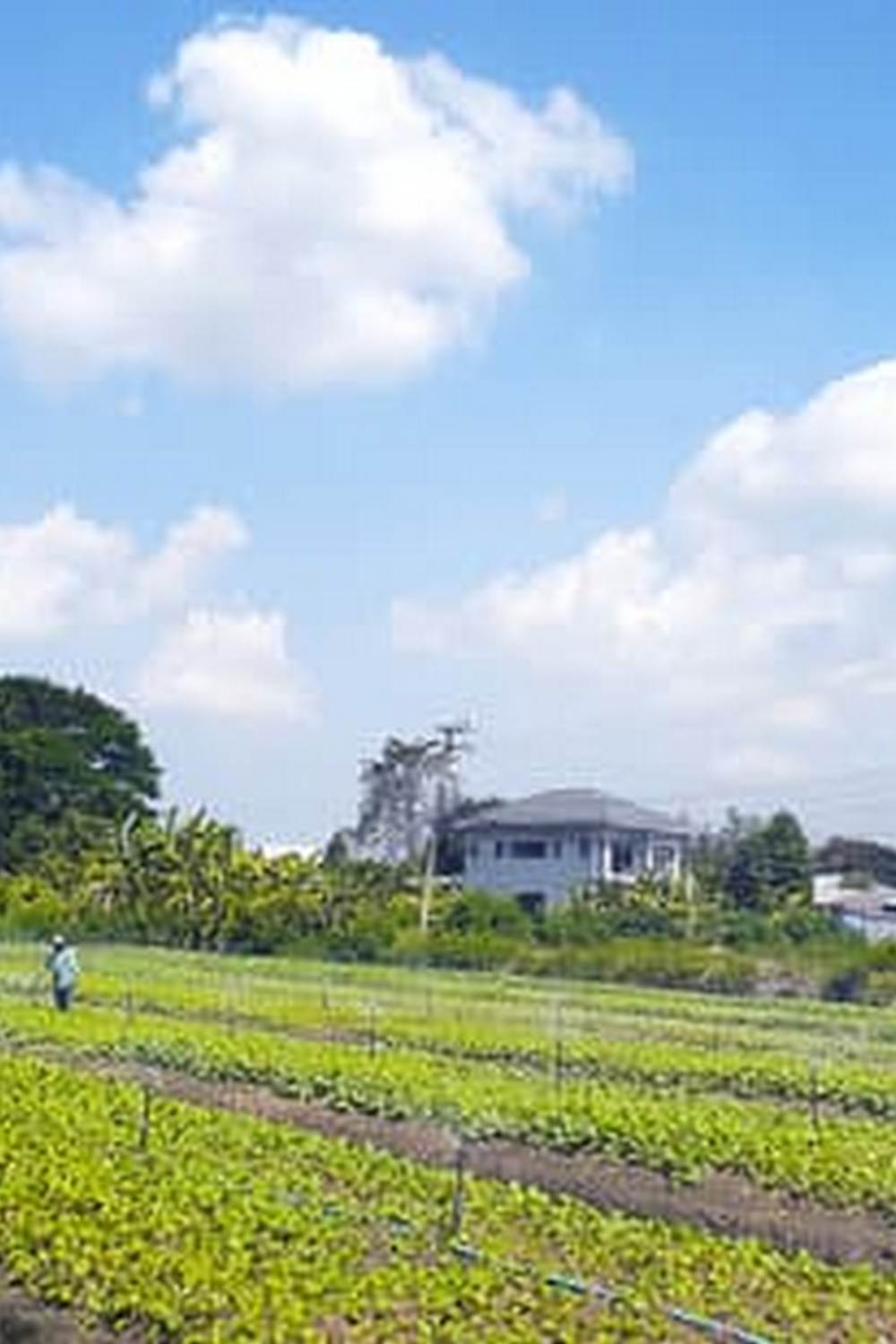Pyrethrin is a natural insecticide derived from the chrysanthemum flower, specifically the pyrethrum daisy. This powerful insecticide is commonly used in vegetable gardens to effectively control a wide range of pests without causing harm to humans or animals. Pyrethrin works by targeting the nervous system of insects upon contact, ultimately leading to their paralysis and death.
One of the key benefits of using pyrethrin in vegetable gardens is its effectiveness in eliminating harmful pests such as aphids, caterpillars, beetles, and mites. This natural insecticide provides an environmentally friendly solution for gardeners looking to protect their produce without resorting to harsh chemicals that can damage the ecosystem. Additionally, pyrethrin breaks down rapidly in sunlight and air, making it a safer option for use on fruits and vegetables.
When using pyrethrin in vegetable gardens, it is important to follow safety precautions and guidelines to minimize risks. Always wear protective clothing, gloves, and goggles when applying pyrethrin products. It is also crucial to avoid spraying during windy conditions to prevent drift onto unintended areas. By following these measures, gardeners can safely harness the power of pyrethrin for effective pest control in their vegetable gardens.
Benefits of Using Pyrethrin in Vegetable Gardens
Pyrethrin is a natural insecticide derived from the chrysanthemum flower, making it a popular choice for pest control in vegetable gardens. One of the main benefits of using Pyrethrin is its effectiveness in quickly killing a wide range of insects that commonly attack vegetables. This includes pests such as aphids, beetles, caterpillars, and mites. By targeting these pests, Pyrethrin helps to protect the health and yield of your vegetable plants.
Environmental Benefits
In addition to its effectiveness against pests, Pyrethrin also offers environmental benefits when used in vegetable gardens. Unlike synthetic chemical pesticides, Pyrethrin breaks down quickly in sunlight and soil, reducing the risk of contaminating groundwater or harming beneficial insects such as bees and ladybugs. This makes Pyrethrin a preferred choice for gardeners looking to minimize their impact on the environment while still effectively managing pest populations.
Organic Certification
For gardeners who follow organic gardening practices, Pyrethrin is an approved insecticide for use in organic production. It is considered safe for use on edible crops and does not leave behind harmful residue that could affect human health. This makes Pyrethrin an ideal choice for those seeking to grow healthy, organic produce without compromising on pest management.
Safety Precautions and Guidelines for Using Pyrethrin in Vegetable Gardens
Pyrethrin is a natural insecticide derived from chrysanthemum flowers. It works by targeting the nervous systems of insects, ultimately leading to their paralysis and death. This makes it an effective option for controlling pests in vegetable gardens without leaving harmful residues on the produce. When using pyrethrin in your vegetable garden, it is essential to follow safety precautions and guidelines to ensure the best results and minimize any risks.
To safely use pyrethrin in your vegetable garden, consider the following guidelines:
- Always read and follow the label instructions on the product carefully.
- Avoid applying pyrethrin on windy days to prevent drift onto non-target areas or plants.
- Wear protective clothing, such as gloves and goggles, when mixing or applying pyrethrin.
- Keep children and pets away from treated areas until the spray has dried completely.
In addition to these safety precautions, it is essential to consider the environmental impact of using pyrethrin in your vegetable garden. While pyrethrin is considered safe for use in organic gardening, it can still have negative effects on beneficial insects like bees and butterflies if overused. Therefore, it is crucial to use pyrethrin judiciously and only when necessary to protect your vegetable garden while maintaining a healthy ecosystem.
Overall, when used correctly following safety precautions and guidelines, pyrethrin can be a valuable tool for pest control in vegetable gardens. By understanding how to properly apply this natural insecticide and taking steps to minimize any risks associated with its use, you can effectively manage pests while keeping your vegetables safe for consumption. So why not try using pyrethrins for vegetable gardens today?
How to Properly Apply Pyrethrin in Vegetable Gardens for Maximum Effectiveness
Pyrethrin, derived from chrysanthemum flowers, is a popular and effective natural insecticide for vegetable gardens. When used correctly, pyrethrin can help control a wide range of pests such as aphids, beetles, caterpillars, and thrips without leaving harmful residues on your fruits and vegetables. To ensure maximum effectiveness while using pyrethrin in your vegetable garden, it is essential to follow proper application techniques.
First and foremost, it is crucial to read and understand the product label instructions before applying pyrethrin in your vegetable garden. Different pyrethrin products may have varying concentrations and application rates, so it is important to follow the manufacturer’s guidelines carefully. Additionally, make sure to wear protective clothing such as gloves and long sleeves to prevent skin contact with the insecticide.
When applying pyrethrin in your vegetable garden, it is recommended to do so in the early morning or late evening when beneficial insects are less active. This helps minimize the impact on non-target insects like bees and butterflies while maximizing its effectiveness on the pests. Use a handheld sprayer or a hose-end sprayer for more precise application on both sides of leaves where pests tend to hide.
Lastly, be consistent with your pyrethrin applications for ongoing pest control in your vegetable garden. Depending on the severity of infestations, you may need to reapply pyrethrin every 7-10 days to ensure continuous protection against pests. Remember that overusing pyrethrin can lead to resistance in pests, so use it judiciously and consider rotating with other organic pest control methods for a well-rounded approach to managing pest problems in your vegetable garden.
Common Pests in Vegetable Gardens That Pyrethrin Can Control
There are several common pests that can wreak havoc in your vegetable garden, making it challenging to grow healthy and thriving plants. Fortunately, Pyrethrin can effectively control many of these pests without harming the environment or beneficial insects. Here are some of the most common pests in vegetable gardens that Pyrethrin can target:
- Aphids: These small insects feed on plant sap and can rapidly spread throughout your garden if left unchecked. Pyrethrin works by disrupting their nervous system, ultimately leading to their demise.
- Caterpillars: These voracious eaters can quickly strip your plants of leaves and fruits. Pyrethrin is effective in controlling caterpillars by paralyzing them upon contact, preventing further damage to your crops.
- Squash bugs: These pests can cause significant damage to squash, cucumber, and melon plants by sucking the sap from their stems and leaves. Using Pyrethrin can help eliminate squash bugs without harming beneficial insects like bees.
By incorporating Pyrethrin into your pest management strategy for your vegetable garden, you can effectively combat these common pests and protect your precious crops from destruction. Remember to follow safety precautions and guidelines when using Pyrethrin to ensure the health of both your plants and the environment.
Make sure to choose the right Pyrethrin product for your specific needs and always read the label instructions carefully before application. With proper use of Pyrethrin, you can enjoy a bountiful harvest of healthy vegetables free from destructive pests.
Tips for Choosing the Right Pyrethrin Product for Your Vegetable Garden
Formulation
One important consideration is the formulation of the Pyrethrin product. Pyrethrin products come in various forms such as dusts, sprays, and concentrates. Dusts are ideal for treating hard-to-reach areas and can provide long-lasting protection. Sprays are convenient for covering large areas and can be easily applied with a sprayer. Concentrates are typically diluted with water before application and offer versatility in terms of application method.
Organic Certification
If you are looking to keep your vegetable garden completely organic, be sure to choose a Pyrethrin product that is certified organic. These products have met specific guidelines and do not contain any synthetic chemicals or additives. Look for labels that indicate certification by organizations such as the Organic Materials Review Institute (OMRI) or the United States Department of Agriculture (USDA).
Pest Specificity
Consider the specific pests that you are looking to control in your vegetable garden when selecting a Pyrethrin product. Different formulations may be more effective against certain types of insects, so it’s important to choose a product that targets the pests you are dealing with. Some Pyrethrin products are broad-spectrum and can control a wide range of insects, while others may be more targeted towards specific pests like aphids, beetles, or caterpillars.
By taking into account these factors – formulation, organic certification, and pest specificity – you can ensure that you choose the right Pyrethrin product for your vegetable garden needs. Remember to always read and follow the instructions on the product label to maximize its effectiveness while minimizing any potential risks associated with its use.
Potential Risks and Side Effects of Using Pyrethrin in Vegetable Gardens
Pyrethrin is a widely used botanical insecticide derived from chrysanthemum flowers. It is known for its effectiveness in controlling various pests in vegetable gardens, making it a popular choice among organic gardeners. However, despite its numerous benefits, there are some potential risks and side effects associated with using pyrethrin in vegetable gardens.
One of the main concerns with using pyrethrin in vegetable gardens is the impact it can have on beneficial insects. While pyrethrin is considered relatively safe for humans and pets when used as directed, it can be harmful to bees, ladybugs, and other beneficial insects that play a crucial role in pollination and natural pest control.
To minimize the risk to these beneficial insects, it’s important to apply pyrethrin early in the morning or late in the evening when bees are less active.
Another potential risk of using pyrethrin in vegetable gardens is the development of pesticide resistance in target pests. Over time, repeated use of pyrethrin can lead to certain pests developing resistance to this insecticide, rendering it less effective. To prevent this from happening, it’s essential to rotate different types of insecticides and pest control methods in your vegetable garden.
It’s also crucial to follow safety precautions when using pyrethrin in vegetable gardens. Always read and follow the instructions on the product label carefully, wear appropriate protective clothing such as gloves and goggles, and avoid applying pyrethrin on windy days to prevent drift.
Additionally, store pyrethrin products out of reach of children and pets to prevent accidental ingestion or exposure. By being aware of these potential risks and side effects and taking necessary precautions, you can safely utilize pyrethrin for pest control in your vegetable garden while minimizing any adverse impacts.
| Risks | Side Effects |
|---|---|
| Harmful to beneficial insects | Pesticide resistance development |
| Need for safety precautions | Applying at specific times |
Alternatives to Pyrethrin for Organic Pest Control in Vegetable Gardens
Organic pest control is an essential aspect of maintaining a healthy vegetable garden without resorting to harmful chemicals. While pyrethrin is a popular choice for many gardeners due to its effectiveness in controlling pests, there are also alternative methods that can be utilized for organic pest control in vegetable gardens.
One such alternative is neem oil, which is derived from the seeds of the neem tree and has insecticidal properties that can repel and kill pests like aphids, beetles, caterpillars, and more.
Another effective alternative to pyrethrin is diatomaceous earth, which is a natural substance made of fossilized remains of tiny aquatic organisms called diatoms. When applied to the soil or plants in your vegetable garden, diatomaceous earth acts as a barrier that dehydrates and kills insects upon contact. This method is especially useful for combating pests like slugs, snails, ants, and other crawling insects that may damage your crops.
Additionally, introducing beneficial insects like ladybugs, lacewings, and predatory mites into your vegetable garden can help naturally control pest populations by preying on harmful insects. These beneficial insects act as biological control agents, reducing the need for chemical pesticides like pyrethrin. By promoting a healthy ecosystem within your garden, you can minimize pest infestations and maintain a balance between predators and prey without compromising the safety of your vegetables.
| Alternative Pest Control Method | Targeted Pests |
|---|---|
| Neem Oil | Aphids, beetles, caterpillars |
| Diatomaceous Earth | Slugs, snails, ants |
| Beneficial Insects | Harmful insects such as aphids and mites |
Conclusion
In conclusion, Pyrethrin can be a valuable tool for gardeners looking to control pests in their vegetable gardens effectively and organically. With its natural origins and low toxicity to humans and pets, Pyrethrin offers a safe alternative to chemical pesticides. Its ability to quickly immobilize and kill insects makes it an efficient solution for combating common pests like aphids, spider mites, and caterpillars.
While the benefits of using Pyrethrin in vegetable gardens are plenty, it is essential to follow safety precautions and guidelines when applying the product. Ensuring proper application techniques, choosing the right concentration for your specific needs, and avoiding overuse can help minimize any potential risks or side effects. Additionally, considering alternatives to Pyrethrin for organic pest control can provide a well-rounded approach to maintaining a healthy garden ecosystem.
In the end, the decision to use Pyrethrin in your vegetable garden boils down to weighing its benefits against any drawbacks. With proper research, understanding of safety measures, and consideration of alternatives, gardeners can make informed choices on how best to protect their crops while promoting a thriving environment for beneficial insects. By incorporating Pyrethrin responsibly into your gardening practices, you can enjoy healthy harvests without compromising on sustainability or safety.
Frequently Asked Questions
Is Pyrethrin Safe for Vegetable Gardens?
Pyrethrin is generally considered safe for vegetable gardens when used according to the label instructions. It is a natural insecticide derived from chrysanthemum flowers and breaks down quickly in the environment, posing minimal risk to humans and beneficial insects.
Can You Spray Pyrethrum on Vegetables?
Yes, you can spray pyrethrum on vegetables, but it is important to follow the directions on the product label carefully. Be sure to apply it during the recommended times and avoid excessive use to prevent harm to your plants or surrounding wildlife.
Can I Use Pyrethrum on Tomatoes?
Pyrethrum can be used on tomatoes to control common pests such as aphids, leafhoppers, and caterpillars. However, it is essential to check the label for specific instructions regarding application rates and timing to ensure the safety of your tomato plants.

If you’re looking to get into vegetable gardening, or are just looking for some tips on how to make your current garden better, then you’ve come to the right place! My name is Ethel and I have been gardening for years. In this blog, I’m going to share with you some of my best tips on how to create a successful vegetable garden.





